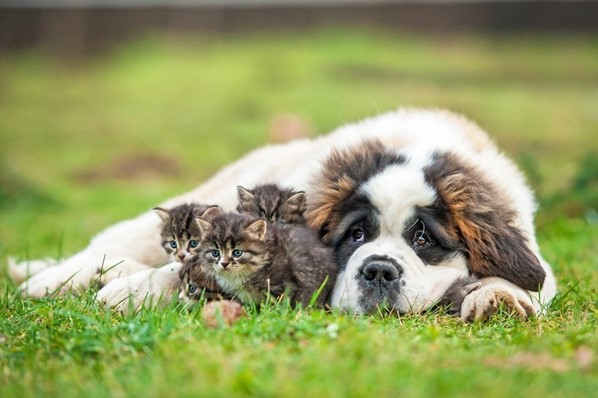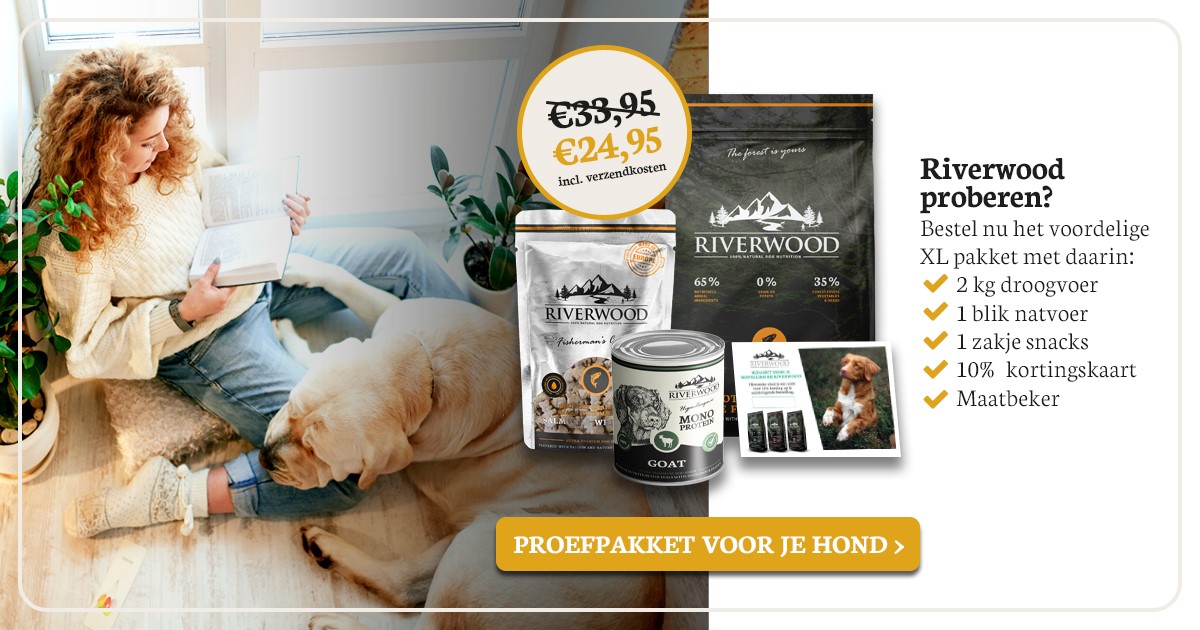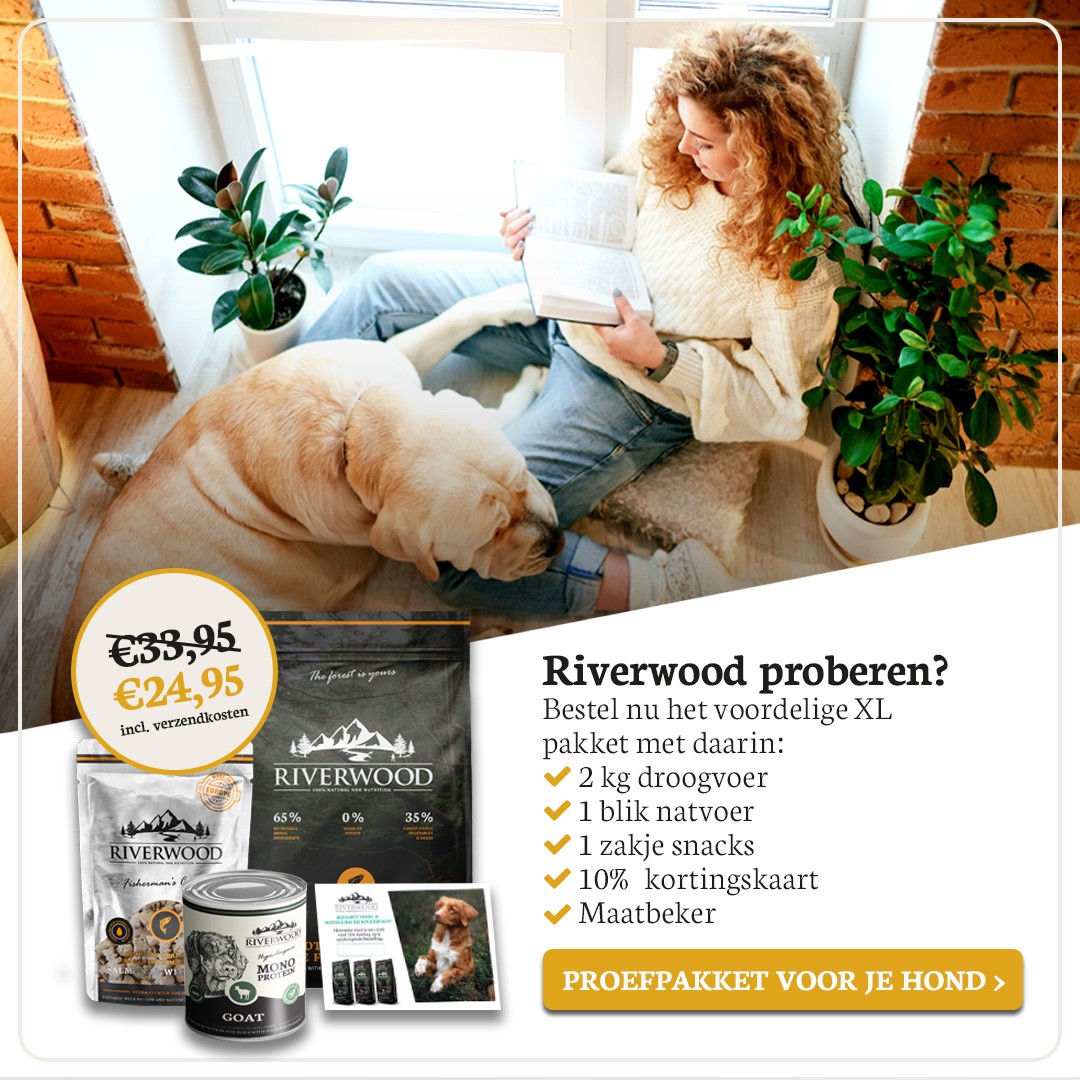Help, my dog or cat has Giardia!
Does your dog or cat have gastrointestinal symptoms such as (recurring) diarrhea, vomiting and loss of appetite? If so, your pet may have contracted a contagious Giardia infection. Giardia is one of the most common gastrointestinal parasites in dogs and cats and is especially common in young animals and those with weakened immune systems. In the blog below, you can read more about exactly what Giardia is, what the symptoms are and how best to treat Giardia.

What is Giardia?
Giardia is a single-celled parasite that can occur in the intestines of both animals and humans. This therefore means that Giardia is a zoonosis: the parasite can be transmitted from animals to humans. A Giardia infection is highly contagious and therefore spreads quickly in places where there are several animals, such as in exercise yards and in kennels or animal shelters. Young animals, small children and animals or people with weakened immune systems are particularly at risk of infection.
How is Giardia spread?
Giardia infection always occurs through the mouth. This can happen because your pet comes in contact with infected feces, but infection can also come from the dog or cat licking its paws or fur after a walk outside, drinking or swimming in infected water or eating and drinking from an infected food bowl. The parasite attaches to the intestinal wall, after which it divides itself. As a result, Giardia multiplies at lightning speed. A major disadvantage is that Giardia can survive for a long time outside the body of a human or animal, so (re)infection is always a possibility.
What are the symptoms of Giardia?
The most common symptoms associated with a Giardia infection are gastrointestinal symptoms, such as (recurrent) diarrhea, nausea and vomiting. Symptoms begin about 6 to 14 days after infection. In dogs, the stool often smells tremendously and is also slimy and pale. Cats, in most cases, experience large intestinal diarrhea. This means that they will defecate and push on stool more often. The stool may also be slimy and may even contain blood. Both dogs and cats may experience decreased appetite, and with prolonged diarrhea, animals may also lose weight.
However, the symptoms may also occur to a lesser extent. In fact, it is common for adult dogs and cats to have no symptoms at all but are infected. When a Giardia infection is not treated, symptoms may persist for months.
How do you treat Giardia?
Do you suspect your pet has contracted a Giardia infection? If so, contact a veterinarian. To diagnose an infection of the parasite, a stool test is done. The veterinarian will need your pet's stool for three days to do this. If the examination reveals that your pet does indeed have a Giardia infection, it is important that the animal be treated to prevent other animals from becoming infected. Giardia can be treated in two ways, either with an anthelmintic (containing the active ingredient fenbendazole, which is found in Panacur for example) or with a course of antibiotics (containing the active ingredient metronidazole, which is found in Metrobac or Metrazol for example). It is also advised to clean both the animal and the environment in which the animal lives well, as Giardia can survive outside the animal for a long time.
What can a dog or cat eat with diarrhea?
It is often advised to give pets with (persistent) diarrhea boiled rice with chicken, as this would be easily digestible and give the dog's or cat's intestines a chance to calm down. Actually, this is just an odd course of action. The gastrointestinal tract of a dog or cat needs 6 to 8 weeks to get used to new food, so why should you completely change your pet's diet when its intestines are already upset?
Besides taking time for the animal to get used to new food, a dog's or cat's body can't do much with rice. Dogs and cats are unable to digest large amounts of rice, and in addition, rice also contains little nutritional value.
But what can you give a dog or cat with diarrhea? Choose easily digestible food with high-quality nutrients, but don't suddenly switch types of food. Does your pet normally get fresh meat or wet food? Then choose meat with an easily digestible protein source, such as turkey, venison or (white) fish. Does your dog or cat's daily menu consist of kibble? Then it is advised to divide the amount of kibble into smaller portions and give it to the pet spread throughout the day (for example, every 2 to 3 hours). In addition, it is recommended to skip giving snacks and other extras for a while. It is also important to keep the animal drinking well, as diarrhea can cause dehydration of the body.
Riverwood's Mono Protein canned dog foods contain 70% meat from only one protein source and are available in eight different varieties, including a number of easily digestible varieties. View the full range of wet dog foods here.
Hygiene and regular deworming are essential
Although unfortunately you cannot prevent a Giardia infection, you can try to minimize the chances of infection. Good hygiene is hugely important in this regard. Here are some tips:
- Remove your cat's feces from the litter box daily and always clean up your dog's feces while walking;
- Keep your four-legged friend's food and water bowls clean;
- Regularly clean the baskets your dog or cat often lies in and, should you travel with your four-legged friend, regularly clean the car as well;
- Don't leave your dog's or cat's food standing around and make sure you store the supply of food neatly in a sealed food container, so that flies don't have a chance to transmit the parasite;
- Because the risk of Giardia infection is greater in young animals and in those with weakened immune systems, it is advisable to avoid exhaust areas where feces remain.
- Finally, regular deworming of your pet is essential. After all, prevention is better than cure!
Many pets already enjoy Riverwood every day. Would you like your dog or cat to feast on our delicious foods and are you curious which variety would suit your dog or cat best? Then answer some questions about your dog here or about your cat here and order an inexpensive sample pack immediately.




